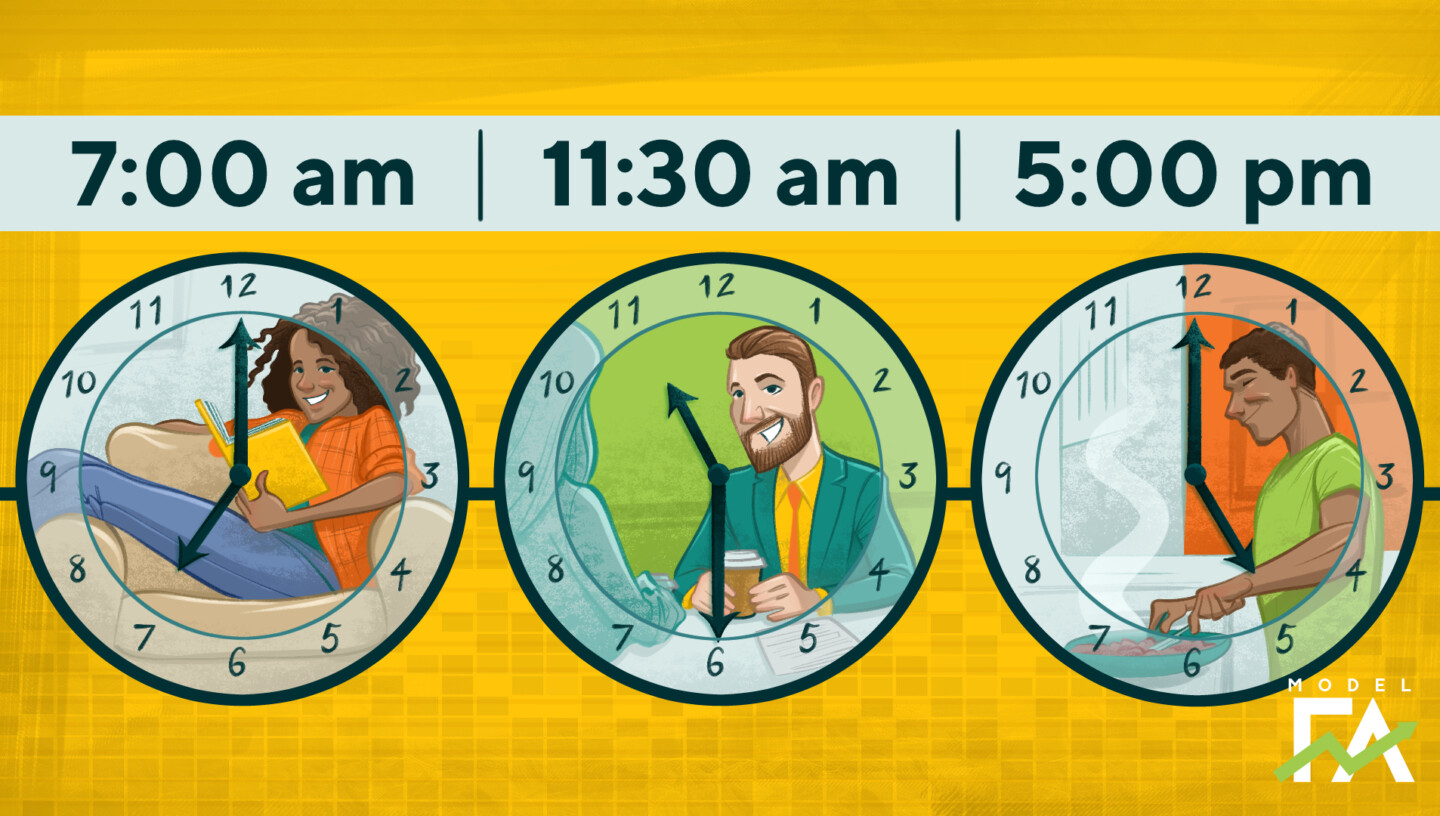The Importance of Daily Routine for Financial Advisors
03.08.21 | David DeCelle | 0 Scale
Summary: If you feel that your day gets away from you all too often, what you need is a routine. Here are 3 simple steps to get started.
Do you wake up every morning feeling stressed about the day ahead?
Do you wait until you’re sitting down in your office to see what you have to do today?
Do you find yourself constantly reacting to incoming requests and emergencies — and turning off your computer at the end of the day feeling as though you have accomplished nothing?
It may be reality for a lot of advisors — don’t let it fool you. This hectic way of working and living is not sustainable. When you’re reactive instead of proactive, you’re always stressed and anxious. And what’s worse is that it leaves you little space to build the intentional, sustainable, thriving practice that you had envisioned back when you became a financial advisor.
What you need is a routine.
Routines can be tremendously useful. For one, they make us more efficient because we spend less time and energy deciding what to do and when. That leaves more time and energy for better, more productive work.
Routines also make planning easier. You know exactly what types of tasks to do every day and when. All you need is a little planning. For example, I have a routine to do some business development every day. Once I have made that choice, all I have to do on the day-to-day basis is pick who I am reaching out to, when, and how.
Lastly, routines are excellent tools for slashing bad habits and replacing them with good ones. After all, actions done repeatedly become habits — and you may as well choose some good ones that move you forward in the direction of your goals.
Now, even those of us who are good about routines often forget a vital part — “you” time.
Time for yourself in the morning
This is the part we struggle with the most.
We forget to set aside time for ourselves. Instead, we let every second of the day get eaten up by other people through calls, meetings, emails, and social media. No wonder we often get to the end of the day just to realize that (a) we are exhausted, (b) we have been doing something all day and it has made no difference, and (c) there is no energy left to make the choices that would give us a chance to recover, recharge, and think.
If you want to do things differently, try protecting the early morning time for yourself. It will help you clear your head and get ready for the day.
Here are the 3 things I did this morning before 6 AM:
- Journal for 5 minutes after waking up.
- Work out while listening to audiobooks. I have found that getting those endorphins flowing gets me feeling good and awake — and leads to a more positive day. Not to mention the general importance of getting some daily movement in before the rest of the day catches up with me.
- Finish off with meditation, so my mind’s calm and focused.
From there, I move into my workday.
By following this routine every morning, I feel less stressed, more clear-headed, and eager to get to work. Instead of scrambling every morning, I have a routine I can follow without thinking too hard about what I’m going to do.
Time for yourself in the evening
The other half of “you” time comes in the evening.
Having a structured evening makes it easier to knock out other personal tasks or spend time with family. Things like dinner, chores, and, if you’re a parent, hanging out with the kids or helping them with homework.
No matter how your evening routine looks, work in some time to reflect on today and plan out tomorrow.
I spend about 30 minutes every evening doing this.
For example, I might check and make sure my workout time still works for my schedule the next morning. I might also identify who I’ll speak to during my business development period, so that I can dedicate all 60 minutes of that time to the conversation.
And so on.
Now, here is a critical part. Regardless of how you lay out your mornings and evenings, create actual “you time” events that are recurring in your calendar. Treat it just as you would any other appointment. That way, you’re more likely to follow through with it.
During the day: Give your time to others
However, it shouldn’t be haphazard. Instead, break your day into chunks dedicated to different tasks.
Let me give you an example from my schedule.
I start my workday with a block dedicated to advancing relationships. This might involve sharing a podcast, a book, or a relevant meme with as many people as possible. Sometimes, this takes the shape of a phone call or an email. In doing so, I’m building connections with people and strengthening relationships.
Next comes business development. This is my time to work ON my business, rather than IN it. During this block, I do the tasks that help me move my business further. Yes, it’s still a bit of “me” time. But by building my business, I can give my time to more people.
The rest of my day is fairly open. This is where I do work, like coaching calls with advisors and discovery calls for strategic partnerships.
What about meetings that overlap?
Sometimes, meetings and other priorities come up during your recurring events. Perhaps a client can only speak with you during the time when you would normally be handling your business development tasks.
The choice I typically make is to use as much of the business development time as I can for the intended purpose — and reschedule the rest.
For example, my normal business development window is 8:30-9:30 AM. If I have a meeting come up at 9 AM, and that’s the only time the person I’m speaking with can talk, I’ll end my business development at 9 AM. However, I’ll move the other 30 minutes to another time slot during the day. That way, I get to connect with the client — and still get my business development time in.
Structure your own routine
What works for me routine-wise won’t necessarily work for you. You have to build your routine around your own life and what matters most to you.
For example, I don’t have kids — but you might. If so, I bet you’re always pressed for time in the morning and in the evening. It’s hard to set aside time for yourself when you’re running the kids to and from activities, making sure they’re fed, helping them with homework, and so on.
When mornings and evenings get hectic, you’re left with no time or energy for anything else.
A solution might be to go to bed and wake up a bit earlier. You’ll have more energy for “you” time after a good night’s rest. It will create a space to build a routine that increases your productivity throughout the day.
Some advisors have an easy time carving out the time to focus on their prep for the day and planning. Others struggle with it. At the end of the day, it’s important to remember that your current routine is temporary. Life changes will force you to adjust the way you go about your day, so stay with it.
Do you wish you could create a routine for your day — but aren’t sure how to structure it? Or do you feel that your day is beyond help and just too hectic to have the luxury of intention, planning, and recharging? Model FA helps advisors like you structure their days around their unique lives to enhance productivity and cut stress. We’ll look at your lifestyle and help you build a routine that works for you. Book your strategic call with me to get started: https://www.modelfa.com/accelerator-call-cf/
